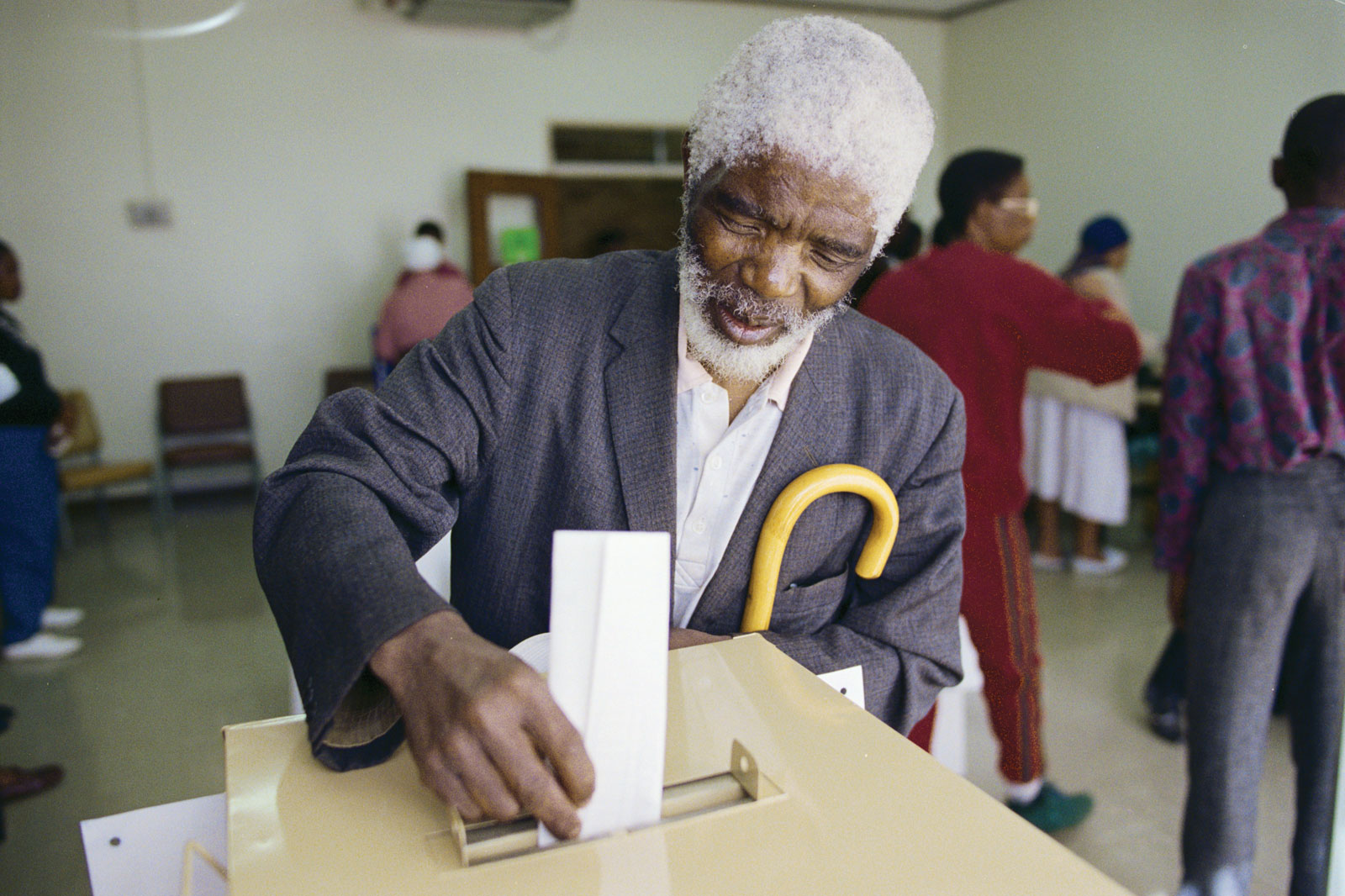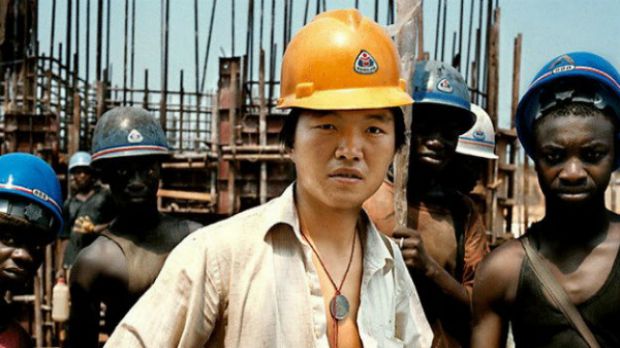Africa’s connections to Atlanta include well-established cultural, educational and business relationships, but many may be surprised to learn that an Atlanta biotech company is among the leaders in battling two of the African continent’s most deadly diseases – HIV/AIDS and Ebola.
GeoVax Labs Inc. and its CEO, Robert McNally, Ph.D., recently were honored in Atlanta by the African Leadership Magazine (ALM) for the company’s groundbreaking research in developing AIDS and Ebola vaccines.
“Dr. McNally’s selection for the prestigious African Leadership Award,” said Group Managing Editor Kingsley Okeke, “is based on his company’s contribution to the fight against the HIV/AIDS pandemic and Ebola, two of the deadliest scourges threatening the health of the people of Africa.”
GeoVax’s most advanced vaccine development program is for prevention of HIV/AIDS infection. With funding from the U.S. National Institutes of Health, the company’s HIV vaccine has proved safe in four clinical trials involving 500 people. GeoVax is in position to start a pivotal efficacy trial in the next year with results expected in four years.
The vaccine initially targets the viral strain dominant in the Americas, Europe, Japan and Australia. In July, GeoVax received an NIH grant to begin preclinical testing of a similar HIV vaccine for Africa.
“Despite advancements in drug treatments, AIDS remains a major health problem in Africa, the U.S. and across the globe,” Dr. McNally said. “The best way to put an end to this persistent, deadly epidemic is with a vaccine.”
It’s been more than 30 years since the identification of HIV as the cause of AIDS, and the scope of global suffering remains staggering. Nearly 40 million have died and of the 35 million people living with the virus, 3.2 million are children under the age of 15. In 2013, 1.5 million people died from the disease and another 2 million were newly infected.
HIV infects and kills more people in Africa than anywhere else in the world; and more than 90 percent of children worldwide with HIV live in sub-Saharan Africa.
In the U.S., 1.2 million Americans are living with HIV and 10,000 to 12,000 people die yearly. Another 50,000 people are infected each year with African Americans bearing the heaviest burden of new diagnoses. The infection rate is increasing fastest among young people, ages 13 to 24.
“Although we have several effective HIV preventive strategies, mathematical modelling suggests that without a vaccine we will not be able to bring the epidemic to zero, especially in the poorest countries,” said Jose Esparza, MD, Ph.D., adjunct professor at the University of Maryland’s Institute of Human Virology,
Esparza, former senior adviser on global health for the Bill and Melinda Gates Foundation, added that development of an HIV vaccine is “an urgent public health need” and he recommended that the most promising vaccines should be advanced to efficacy trials as quickly as possible. “Otherwise,” he said, “we will have many more scientific publications, but not a vaccine for public health use in the populations in need.”
Britta Wahren, MD, Ph.D., at Sweden’s Karolinska Institute, agrees. “It is, of course, preferable to block infection by vaccination,” said the senior professor in the Department of Microbiology, Tumor and Cell Biology. “Cure attempts have a long way to go. Drug combinations have proven very successful to treat the infection for years, but also have a number of side effects.”
Bill Snow, director of the New York-based Global HIV Vaccine Enterprise Secretariat, said, ‘Everyone who is working in HIV recognizes that we can’t treat our way out of the epidemic. The two things that will have the most impact are having a cure and vaccine.”
The strongest case for a vaccine is the global case, Snow said, and Africa is the prime example of the disease’s devastating impact.
“I wish I could send every teen-ager to South Africa for a week,” he said. “There’s nothing like experiencing how wonderful the people are and how much (HIV) is influencing their lives. The people in Africa get it. They understand why we need a vaccine.”
James Curran, MD, MPH, dean of Atlanta-based Emory University’s School of Public Health, said developing a vaccine has been difficult because of the nature of the virus.
“Many successful vaccines mimic a successful immune response to a virus,” he explained. “For example if you are exposed to polio and you recover you develop an immune response that prevents you from getting polio again; similarly with measles and many other microorganisms.”
Curran added, “With HIV there is not a simple immune response. The virus itself doesn’t produce an immune response in humans which can rid them of the virus and protect them from future infection.”
Curran, who in 1981 coordinated the task force on AIDS at the U.S. Centers for Disease Control and Prevention (CDC) and then led the agency’s HIV/AIDS Division, said, “The question is will there be a safe and effective vaccine. The answer is we don’t know for sure that it’s feasible. But a lot has been learned and the vaccines in clinical trials, including the GeoVax vaccine, should teach us a lot more and we hope that success will follow these efforts.”
Snow is familiar with GeoVax’s vaccine and said, “I have enormous admiration for the people at GeoVax. They have persisted against long odds and they have decent results (from studies of their vaccine) that are worth pursuing.”
Since the beginning of the AIDS epidemic, six vaccine efficacy trials have been completed, but only one has shown a modest level of protection. This trial, called RV144, was conducted in Thailand from 2003 to 2006.
Results did not achieve the efficacy levels required for commercialization. But the trial represented a breakthrough by demonstrating that a properly designed HIV vaccine can prevent – not just control – infection through antibody responses.
GeoVax Chief Scientific Officer Harriet Robinson, Ph.D., said her company’s vaccine generates non-infectious virus-like particles, which are “a particularly effective form of vaccination.”
The particles are produced by the vaccine in the cells of the immunized person, she added, and stimulate the immune system to produce antibodies capable of blocking infection.
The antibodies raised by the GeoVax vaccine, Dr. Robinson explained, are more promising than those raised by the Thai vaccine.
“The GeoVax vaccine provides a broader range of targets for protective antibodies,” she said, “giving the immune system greater opportunity to block infections.”
In addition, she observed, the quality of the antibodies raised by the GeoVax vaccine is superior to that seen in the Thai trial and in one important measure, the ratio of classes of antibody, the GeoVax vaccine is 10 times more favorable.
In the Thai study, the vaccine achieved high levels of protection the first year, but it quickly waned during the last two years. Emphasizing the urgent need for a vaccine, Dr. Wahren suggested the strong showing the first year may be good enough.
“We might already have a vaccine if we just use it,” she said. “One immediately available way would be to repeat (the Thai) vaccinations yearly.”
But Dr. Robinson said, “The antibody raised by the GeoVax vaccine has by far better durability than that raised by the Thai vaccine, providing hope that protection will not rapidly wane as it did in Thailand.”
Now is the time, Dr. McNally said, to move forward with the GeoVax vaccine: “We believe the scientific evidence for our vaccine, the ongoing financial burden of the HIV/AIDS epidemic and the increase in new infections among young people, all point to the need to evaluate the current version of our vaccine.”
GeoVax’s selection for the African Leadership Award also recognizes the company’s development of vaccines against hemorrhagic fever viruses that have emerged 28 times over the past 30 years in Africa. The vaccines target three strains of Ebola virus (the Zaire strain, Sudan and Bundibugyo strains) and Marburg virus, all of which cause lethal hemorrhagic fevers.
The company began its Ebola vaccine development program in late 2014 using viral genetic sequences from the most recent outbreak in Western Africa. In April, GeoVax entered into a collaboration agreement with NIH for development of the Ebola and Marburg vaccines.
“We are excited about the potential for our Ebola/Marburg vaccine program,” Dr. McNally said, “and pleased with the rate of our progress.”
Recognizing GeoVax’s work, said ALM Managing Editor Okeke, is part of the magazine’s “duty to constantly seek out Africans and friends of Africa as well as development partners, who are contributing positively to the growth of the continent and reward them accordingly, and also showcase them for the world to see; that beyond war, famine and disease, which have become the trite headline coming from the continent, there are equally positive news and vibes from the continent.”
In discussing the significance of the African Leadership Award, Dr. McNally said, “The incidence of HIV has remained unchanged for the last 20 years. It is the sixth largest cause of death. GeoVax is initiating a campaign to raise funds to pay for an efficacy trial to prove protection in a population of U.S. citizens who potentially are at risk of coming down with HIV. This award is very important in our effort to create awareness that a viable vaccine against HIV exists and deserves a chance to prove itself in a clinical trial.”
###




